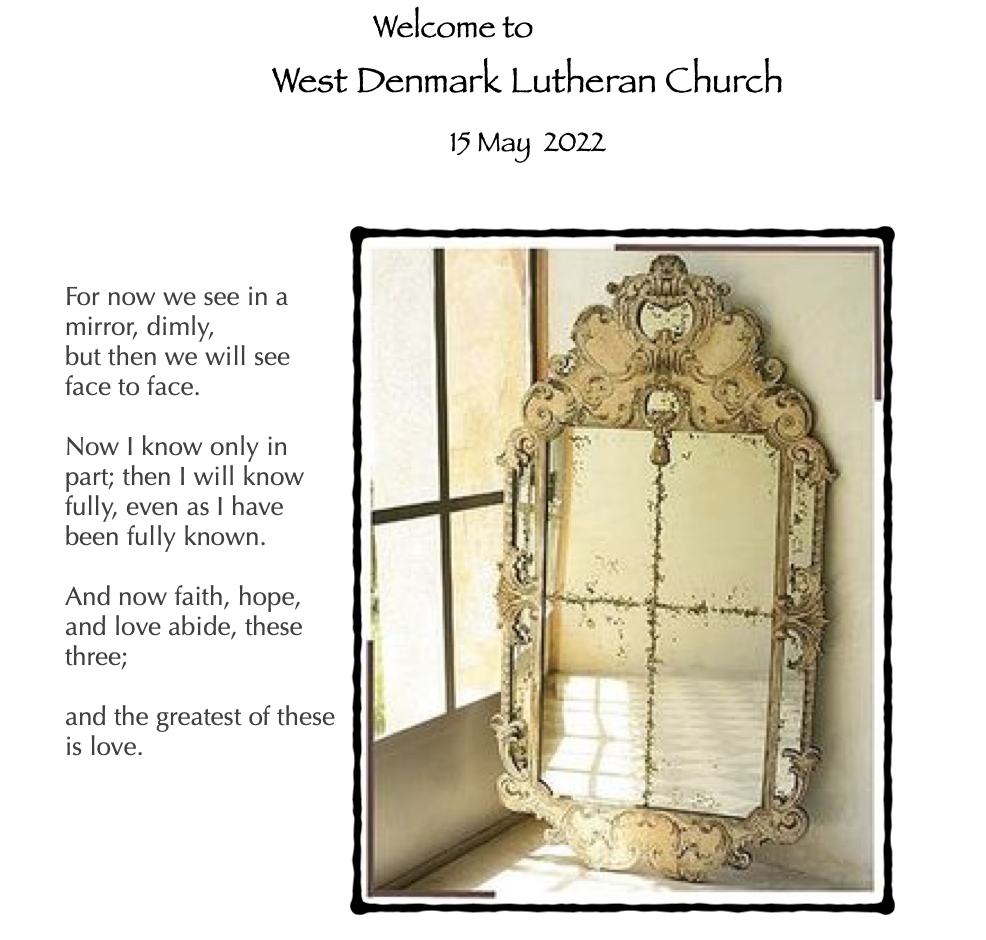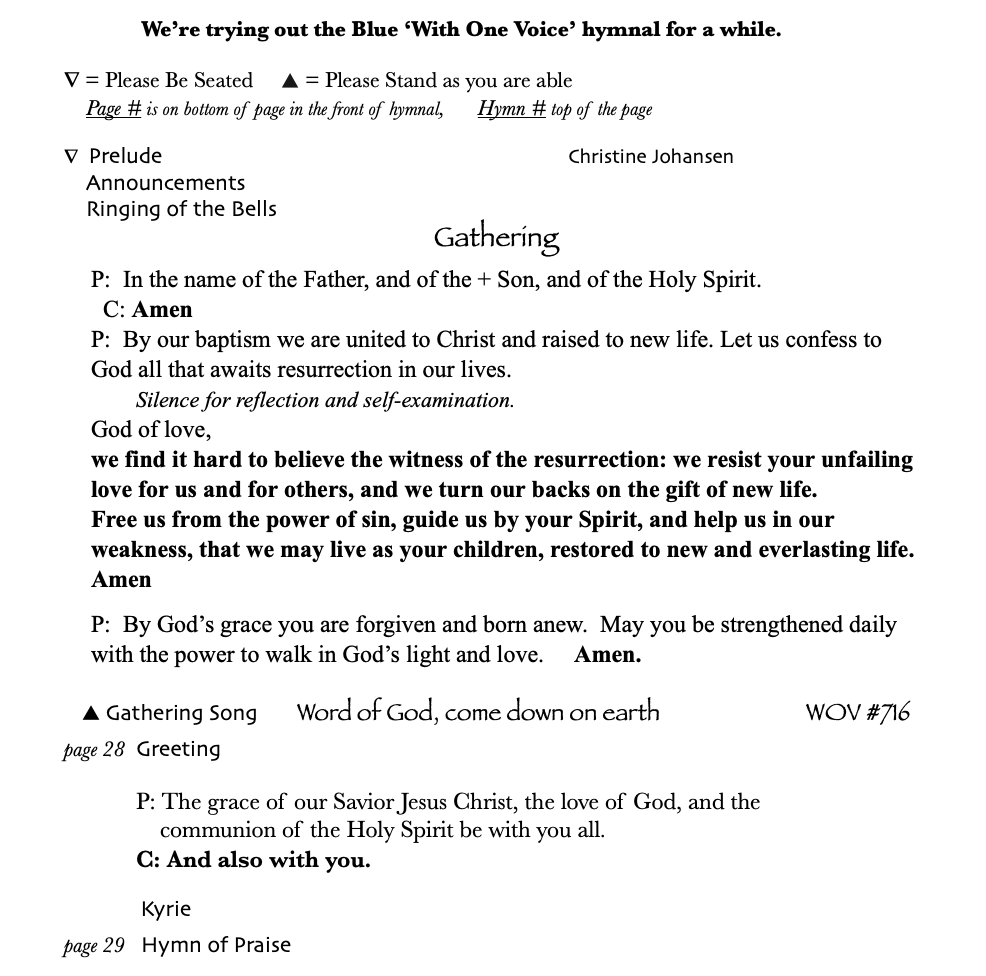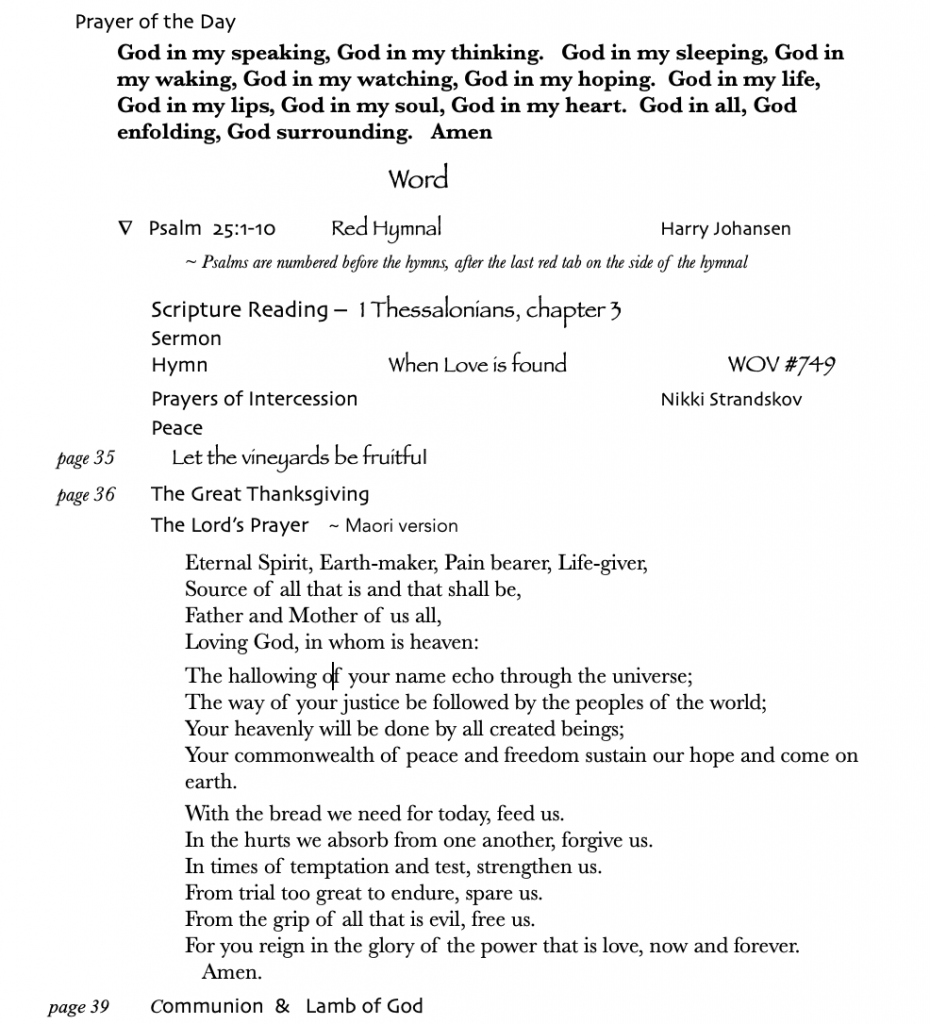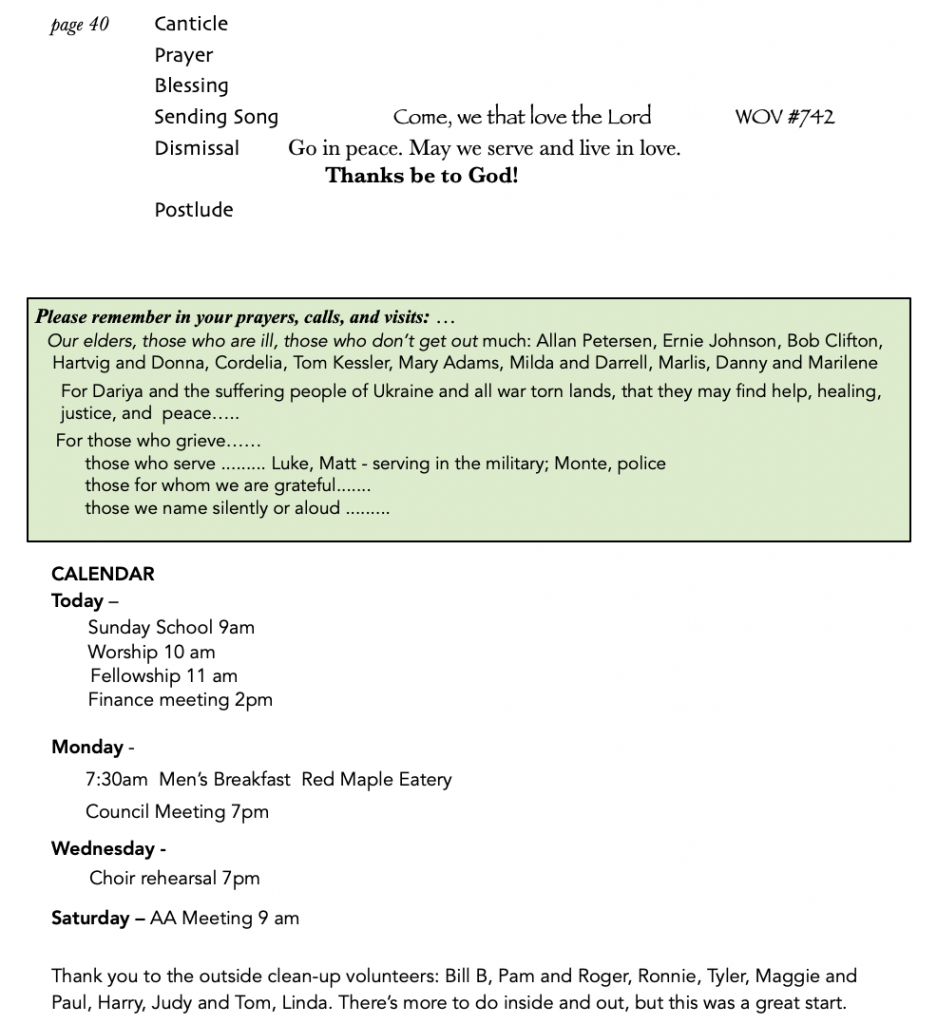Audio Recording

We continue the letter dictated by Paul, Silas, and Timothy to the Christian community they began in Thessalonica. They are writing from Corinth after having been run out of town – and several other towns.
[ch2 17As for us, brothers and sisters, when, for a short time, we were made orphans by being separated from you—in person, not in heart—we longed with great eagerness to see you face to face. 18For we wanted to come to you—certainly I, Paul, wanted to again and again—but Satan blocked our way. 19For what is our hope or joy or crown of boasting before our Lord Jesus at his coming? Is it not you? 20Yes, you are our glory and joy!”]
“Therefore when we could bear it no longer, we decided to be left alone in Athens; 2and we sent Timothy, our brother and co-worker for God in proclaiming the gospel of Christ, to strengthen and encourage you for the sake of your faith, 3so that no one would be shaken by these persecutions. Indeed, you yourselves know that this is what we are destined for. 4In fact, when we were with you, we told you beforehand that we were to suffer persecution; so it turned out, as you know. 5For this reason, when I could bear it no longer, I sent to find out about your faith; I was afraid that somehow the tempter had tempted you and that our labour had been in vain.
6 But Timothy has just now come to us from you, and has brought us the good news of your faith and love. He has told us also that you always remember us kindly and long to see us—just as we long to see you. 7For this reason, brothers and sisters, during all our distress and persecution we have been encouraged about you through your faith. 8For we now live, if you continue to stand firm in the Lord. 9How can we thank God enough for you in return for all the joy that we feel before our God because of you? 10Night and day we pray most earnestly that we may see you face to face and restore whatever is lacking in your faith.
11 Now may our God and Father himself and our Lord Jesus direct our way to you. 12And may the Lord make you increase and abound in love for one another and for all, just as we abound in love for you. 13And may he so strengthen your hearts in holiness that you may be blameless before our God and Father at the coming of our Lord Jesus with all his saints.”
This is quite obviously a love letter. It is enthusiastic, surprised by joy (to borrow a title from C.S.Lewis), effusive in Paul’s pleasure and relief to hear how well things are going with these fledglings. He doesn’t seem to have expected it.
Thessalonica was a thoroughly imperialized city, committed to the ethos and politics of the Roman Empire. The cultural narrative is the imperial narrative, dominated by the emperor and his family, with their claims to divinity, imperishability, and omnipotence.
The message brought by Paul and Silas is an invitation and a challenge to, instead, align one’s life story with the narrative of Jesus, the one who was crucified in weakness and humiliation by the Roman state. This required more than a leap of faith, it was a gulf of dissonance for Jew or pagan converts to bridge.
Nevertheless, we hear in Acts that “Some of them were persuaded and joined Paul and Silas, as did a great many of the devout Greeks and not a few of the leading women” (17:4). Here in Paul’s letter, he gives credit to the Spirit of God, priming them for his teaching, and notes that they received the message so wholeheartedly that they had become an example throughout the region, turning to God from idols, to serve a living and true God, and to wait for his Son from heaven, whom he raised from the dead.”
The opponents of Paul and Silas claim, “They are all acting contrary to the decrees of the emperor, saying that there is another king named Jesus”. Something in the message concerning Jesus and the small community of faith’s new behavior is upsetting to the powerful in the city. Idols permeated every level of city life: their homes, work, religion, economics, politics. The newly converted Thessalonians, this gathered community of disciples, were redefining family, economy and support networks. Relationships and behavior changed as they worked out together what it meant to follow in the way of Jesus instead of empire.
The population at large is often threatened when even small groups begin to re-evaluate their allegiance to the ruling powers and transfer their commitments. Stability and the status quo are reassuring norms for most of us, even if injustice and inequality are the price we have to pay. This has become quite obvious in our current, and on-going, grappling with racism and the mythology of white supremacy.
It must have been baffling. The death of Jesus by crucifixion was like a public service announcement: the Empire is in charge. Crucifixion was a potent reminder of the impressive power of Empire. But when Paul declares the gospel concerning God raising Jesus from that death, he speaks of another—and greater—power in the world that can usurp imperial authority, that calls into question imperial claims to its (previously undisputed) power over the affairs of nations, communities, and individuals. And ears perk up.
Jesus has been raised from the dead and so everything changes. There is a power at work that is more powerful than any earthly ruler – and Paul and his companions have brought an invitation to shift over, to live within Jesus’ story, to take your place in a new narrative. The status quo of Thessalonica sent him packing, but even so, the message, the devotion to one another and to this God had taken strong root.
Paul writes, “How can we thank God enough for you in return for all the joy that we feel … ” and continues with love that is increasing and abounding, with the earnest desire that Paul and the Thessalonians should all be reunited. If we were to read just these few verses, it would be easy to believe the popular — and very attractive — idea that the Christian life is inevitably filled with love and joy and thankfulness and peace. And in one sense, it is. But that doesn’t mean it’s easy or protected or guaranteed.
In fact, as we keep reading we hear that the Thessalonians are suffering; Paul, Timothy and Silas are suffering. The trials and persecutions experienced by the Thessalonian church will increase in measure to their increased imitation of the life, love, and reality of Christ.
This apprentice community rooted themselves and their relationships in a narrative and practice of love. And that commitment to each other will ensure their survival in the midst of suffering. Paul writes to the Corinthians that without love we are nothing – a noisy gong or clanging cymbal, that in the life and example of Jesus, love is to be demonstrated in practical ways in the community. Jesus made clear that the main thing is to love God, and to love our neighbor as we love ourself. And John Lennon sang, “All you need is love, yah, yah, yah, yah, yah. It’s easy!” Well, maybe not. To be rooted in love and to practice love comforts body and soul in the midst of difficulty, but growth in compassion and empathy and spirit can/probably ought to find us questioning ourselves and society in the midst of complacency. It is the power of shifting narratives, of asking new questions about values, expectations, dreams. It is the power, of asking What if?
The magic question Barb gave us in Lent is What will it take? That’s the pragmatist’s question. Or maybe it’s the second question. The dreamer’s magic question is, What if? What if we changed the narrative. What if we changed the goal of life from winning to cherishing, from consuming to observing, from using to loving. What if (for example) we made a fuss about plastics out of love for the creatures that share our space? What if we refused to participate in the usual put-downs and demonizing and limited ourselves to the more difficult task of introspection, examining biases and behaving as we wish others would?
Imitation, someone said, is highest form of flattery. We might try to be imitators of Jesus, to flatter God with love and kindness and courage expressed for our neighbor and world. But what if, in the incarnation, God is imitating human life, is flattering us, showing us the value and potential and power of being fully human… a little lower than the angels as psalm 8 says… Does it change our sense of purpose or responsibility, I wonder, if we shift narratives from being the striving imitator to being the example? In Paul’s understanding and in the Bible’s truth, we are both. Created by and for love. Grateful to God and graceful to everyone else. But, responsible to be what we are created to be, not simply to receive.
Take a moment to bring into your heart’s mind some one, some thing, some place that you love absolutely beyond reason.
What would it take to protect or preserve or promote the thriving of that beloved one or thing or place?
What if you have the power to make it known?
Pastor Linda


